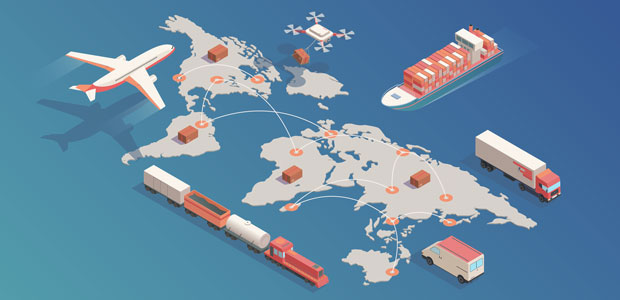
How is the Russian invasion of Ukraine disrupting the global supply chain?
The supply chain network faces another major crisis after shaking the global economy during the COVID-19 pandemic.
Measures to stop trade with Russia cause tension within various resources — such as fertilizers needed in agriculture, palladium, a rare metal used to create semiconductors, and petroleum, the raw material for many products.
What is the supply chain?
Before we dig deep into the effects of the Russian invasion of Ukraine disrupting the global supply chain, do you know what the supply chain is?
Investopedia defines a supply chain as a network between a company and its suppliers to produce and distribute a specific product to the final buyer. This network includes different activities, people, entities, information, and resources. The supply chain also represents the steps it takes to get the product or service from its original state to the customer.
Companies develop supply chains to reduce costs and remain competitive. It is crucial to optimize results in lower costs and a faster production cycle.
The consequences of supply chain disruptions and their effects on the economy
Supply chain disruptions negatively impact global industrial production and trade and increase inflation.
These disruptions do not just create higher prices and shortages among high-end consumer products. They also affect more-basic commodities such as generic drugs or energy, increasing the cost of living and basic needs.
An article shared by Accenture during the pandemic supply crisis examples what are the consequences of it. "COVID-19 wasn't a typical risk event. The scale of its impact eclipses anything most supply chain leaders will have seen before. The speed of the escalation requires continuous end-to-end assessment, optimization and monitoring. Companies had to respond rapidly and confidently to shape and execute a short-term tactical plan to mitigate the risks to human health and protect the functioning of global supply chains."
How is the Russian invasion of Ukraine affecting the global supply chain network?
When we thought that after a two years (still going) period of the pandemic, the slightest chance of a breath after this marathon was literally blown up with the invasion of Ukraine by Russian armies on the 24th of February.
To understand how the situation has escalated since Russia invaded Ukraine, nearly all of the top 10 container shipping companies suspended deliveries and pickups to and from Russia.
Those container shipping companies are responsible for handling about 80% of global trade. Ports in Europe and the U.S. are refusing ships from Russia. While some companies have preferred to adopt sanctions of their own, refusing to buy commodities from Russia, even if it is legally permitted.
The most critical vulnerabilities are Europe's reliance on natural Russia's gas and crude oil for the energy sector and its reliance on Russia and Ukraine for fundamental agricultural commodities. According to the Food and Agriculture Organization of the United Nations, Russia and Ukraine account for more than 25% of the world's wheat trade, more than 60% of global sunflower oil, and 30% of global barley exports. Russia is also a major global exporter of fertilizers. Any supply shortages, or restricted access, could impact crop yields globally.
Besides the global agricultural dependency and Europe's reliance on the energy sector, the modern manufacturing industry also faces the consequences of the war. Due to the COVID-19 pandemic, the world encountered a painful disruption in the semiconductor sectors due to shifting demand and labour shortages.
The invasion of Ukraine by Russia will prolong this continuous semiconductor shortage. Ukraine supplies more than 90% of the U.S.'s semiconductor-grade neon, a gas integral to the lasers used in the chip-making process. On the other hand, Russia supplies 35% of the U.S.'s palladium, a rare metal used to create semiconductors.
According to Forbes, the situation is challenging as leading chipmakers such as Intel, TSMC and Global Foundries work to expand their production in the United States. Putting aside whether finding alternative suppliers is even possible will most certainly take time. And a semiconductor shortage can impact many downstream industries, from home appliance manufacturers to car producers, further escalating inflation and hindering economic recovery for many countries.
Organizational leaders cannot ignore the impact of such ructions on their own business operations and people. They need to be prepared, as the last two years taught the supply chain sector to always be prepared and learn how to manage the risks of a new crisis.


